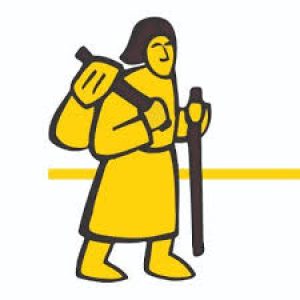The most famous European cultural itineraries are: the Santiago de Compostela path, which passes through France and Spain, and the Via Francigena, which passes through the whole Europe. In addition to these there are other paths, such as the one of San Francesco, the one of San Benedetto, but also the ones that have been historically travelled by people for different reasons. The number tends to raise because there is an increasing demand for “slow walks”.
Near the mass tourism, in fact, it is taking shape an increasing tourism of people, who are looking for the authenticity of places, who want to lose themselves in the culture of the communities they cross, who want to understand people and themselves. Therefore there is now the urgency of a new professional figure: “the entertainer of the European cultural itineraries” and of the slow tourism itineraries tout court. This figure has the aim of helping the actors of the territory to optimise the path to follow and the accommodation system and to guide people in an interpretative system of reality that only the “slow walk” and reflexiveness can allow. To follow these paths, which are intended as educational and alternative tourism paths, permits to experiment new forms of rest, regeneration, soul searching, interpretation of the world. For the communities that have accommodation, this means a reinterpretation of their own culture and development of the awareness of their own identity and the reawakening of a membership pride. The person who wants to attain this role has to know how to:
•
integrate different organisations of the territory so that they work together, in order to guarantee an accommodation that is adequate for the target of the “walks”, starting from the condition of the roads to travel, according to the different means of transport used (on foot, by bike, on a horse, on a wheelchair),
•
offer consultation services to the different organisations to work “online”
•
use and interact with the communication and territorial marketing instruments (web, social, GIS, etc.)
•
support the development of a welcoming culture in the community, starting from the School, although ensuring a central role of elderly people,
•
formulate projects, search for funds to realise them, follow the management and the financial statement
Possible working environments
The working environments to which this figure is destined are multiple. People prepared to perform this role can find an employment in tourist agencies, local institutions, consortiums, in the GAL (Gruppo di Azione Locale – Local Action Group). Above all, they can make their way into the labour market, working for organisations that contribute to create and to offer a service, that doesn’t exist yet, but has great growth potential. Consultation is a privileged field, especially if it works “online” to guarantee uniform solutions throughout a long path. The Francigena is an itinerary that starts from England and passes across the whole Europe.
The modalities of intervention that are required are the capability of completing roles and functions of the territory into the organisation, promotion and management of the paths and the identification of specificities, particularities and excellences to put in the adequate remark.
The educational offer
The master is aimed to form people who want to perform this role with an innovative educational offer, both on the content and on the method levels.
On the content level, it is intended to offer knowledge of different nature, leading altogether to a model called Territorial Organisation (TO).
On the method level, using the formation-intervention®, it emphasises the role to perform and the real management experience of territorial integration processes. This means that the participants will be involved, from the beginning, in a project as Path Entertainer (e.g. Via Francigena, Via Micaelica, etc.) for a different gathering of organisations of different branches of the specific territory.
The educational program
In order to develop a project, already at the beginning of the master, on a specific stage of a specific itinerary, the participants will have 120 hours of methodological lessons, supervised by “participatory planning” experts in the Territorial field. In addition, they will have 108 hours of project work to use directly on the territory of the intervention.
To enrich the wealth of knowledge to use, along the planning process there will be some thematic modules:
•
anthropology, philosophy, theology and history of the Church
•
economical art history, culture and geography
•
territorial organisation and marketing
•
European cultural itineraries
•
maps and path, GPS systems, scales,
•
national and regional norms for crossing and for tourism
•
technology and communication
•
evaluation of the realisation costs, maintenance, safeguard and optimisation
•
European financing and planning to request and manage it
•
management structures of the paths and of the target
•
management structures of tourism
These thematic lessons (120 hours) will be ensured by the professors of the University of Foggia, Economy Department; by the European Association of the Vie Francigene; by representatives of the technical services of the Municipalities that worked on the realisation of important paths; by experts of paths, wether they created them (e.g. Deromedis) or they travelled through them (e.g. Del Giudice). The master eventually foresees some “exploration” days (96 hours of benchmarking) dedicated to the meeting with significant roles from which to learn directly pieces of information about the acquired experience or dedicated to significant conferences or events.
The final exam will consist of a written and an oral exam and it will be the presentation of the realised project on the chosen itinerary. The exam will be evaluated both from the professors of the master (methodologically and thematically) and from the local administrators of the Municipalities crossed by that itinerary.
The Master is organised by Impresa Insieme srl.
The Master duration is 500 hours, divided into:
thematic lessons: 200 hours
methodological lessons: 200 hours: methodology and planning
team building: 40hours
visits: 60 hours
More info in the attached card



